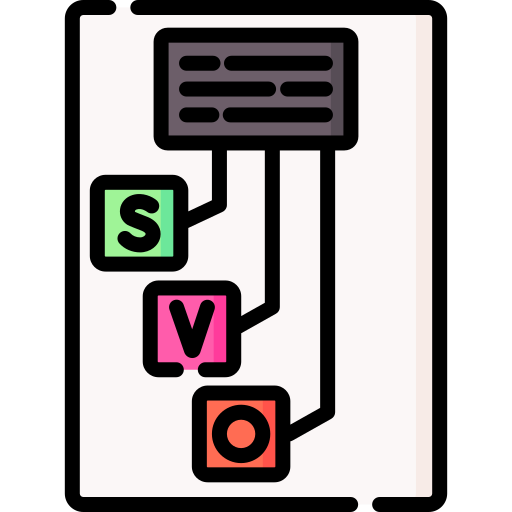 Survival Korean
Survival Korean
Topic outline
-
Welcome to Class!
Grammar Basics
Introduction
We are so glad that you have enrolled in Foundational Korean: Grammar Basics! We hope that over the next four weeks you enjoy learning the general structures underlying the Korean language. It is this larger macro view that we hope provides you with a strong foundation for learning the individual grammar patterns and features that will allow you to communicate. Each module will provide you the necessary knowledge to understand key aspects of the language such as word order, the usage of word-class markers, morphology, etc. When you feel comfortable please also rate our course with the block on the right so we what you thought!
Sincerely
The Survival Korean Team
Overview
Time: 4 weeks
Level: Beginner to Intermediate
Skills: Reading, Listening
Any Questions?
-
Morphology
The Micro Structure of Korean Words
Let's Begin!
Korean is an agglutinating language. Wait? What? Not, it isn't a kind of food product! Compared to other languages such as those in Europe or even Chinese, Korean is characterized by its heavy use of morphology. The term for this in Linguistics is agglutinating! Thus, to better understand the many words you will eventually learn in Korean, it is very helpful to understand what morphology is, as well as what this looks like in Korean.
To Do
- Read though Lecture 1.1 to 1.4.
- Study and review the keywords in the glossary.
- Evaluate your learning with the Knowledge Check.
Activity Overview
Lesson: 1-2 hours
Keyword Study: 1 hour
Any Questions?
-
Lexicology
The Origins of Korean Words
Let's Begin!
Lexicology very broadly refers to the study of words. This can happen in extreme micro detail from looking at morphemes and phonetic segments to as broad as etymology or origin of the words themselves. In Lesson 2, we will take a crash course into the origins of Korean words to help you better understand where they come from (spoiler: most words in Korean are not "native" Korean words) to get a better social and historical perspective on the language, as well as related grammatical features that tend to be used based on the originating source.
To Do
- Do Lesson 2.1 to 2.4.
- Study and review the keywords in the glossary.
- Evaluate your learning with the Knowledge Check.
Activity Overview
Lesson: 3-4 hours
Keyword Study: 1 hour
Any Questions?
-
Syntax
The Order of Korean Words
Let's Begin!
Languages can be classified in many different ways. One way of doing this, however, is by word order. Generally speaking, there are 6 basic orders that any language can have: SVO, SOV, VSO, VOS, OVS, OSV. However, for reasons unknown, the human brain really, really likes to arrange language in either SVO or SOV orders - these two word orders alone account for the vast majority of human language! Korean happens to be classified as SOV and with that classification comes important grammatical features to be aware of.
To Do
- Read through Lesson 3.1 to 3.4.
- Study and review the keywords in the glossary.
- Evaluate your learning with the Knowledge Check.
Activity Overview
Reading: 1-2 hours
Keyword Study: 1 hour
Any Questions?
-
Semantics and Pragmatics
The Meaning of Korean Words in Context
Let's Begin!
We understand words not only by their intrinsic meanings (i.e., water means, well, water) but we also understand the meaning of words due to context and their usage. Water, in addition to be a mineral, can also have poetic meaning based on the human experience - or in other words - context. The culture of Korea is high degree of shared context (when compared to other cultures) thus a lot of meaning is derived from context and not explicitly stated. In this lesson, we will take a look at the role of culture, context, and understanding what things mean when sentences or phrases may otherwise seem so vague or confusing to Korean language learners.
To Do
- Read through Lesson 4.1 to 4.4.
- Study and review the keywords in the glossary.
- Evaluate your learning with the Knowledge Check.
Activity Overview
Reading: 1-2 hours
Keyword Study: 1 hour
Any Questions?















